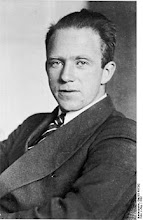McNamara received a degree in Economics from that well known bastion of conservatism, the University of California at Berkeley in 1937, although, in his defense, hippies were still at least a quarter of a century away at that point. In 1939 he received a Masters Degree from the Harvard Graduate School of Business Administration. He served three years in the Air Force during the Second World War were he was, among other responsibilities, tasked with assessing the effectiveness of US bombing in the Pacific theater. After leaving the Air Force, he joined the Ford Motor Company and became its President in 1961.
Due primarily to his success in reviving the fortunes of Ford through the implementation of strategic planning and management processes, he was offered the job of Secretary of Defense in the new Kennedy Administration. As Secretary of Defense, McNamara was influential in the development of America’s strategic nuclear policy and was a devotee of the concept of “mutually assured destruction” which was likely responsible for making Commies look under their beds for the better part of three decades. He was credited with significant improvements to the organizational efficiency of America’s National defense functions through the application of planning and managem
 ent systems similar to those he implemented in his private sector career, and he improved processes for everything from weapons procurement to strategic budgeting.
ent systems similar to those he implemented in his private sector career, and he improved processes for everything from weapons procurement to strategic budgeting.McNamara is undoubtedly best remembered for his involvement in the Vietnam War and his ultimate repudiation of his own approach to the conflict. Fearing the fall of the metaphorical dominoes, the Kennedy (and later Johnson) Administration became increasingly committed to the idea of drawing a line and demonstrating a willingness to resist Communist expansion by force. McNamara attempted to adapt Ulysses S. “Meat Grinder” Grant’s strategic approach to war to the jungles of Southeast Asia and body count his way to victory. As the war dragged on, however, McNamara became increasingly reluctant to approve the commitment of additional US forces necessary to sustain the carnage. McNamara came to believe that in Vietnam complete obliteration of the enemy was no longer a strategically or morally acceptable policy and he ultimately resigned his position in early 1968.
Much has been written of McNamara and he has been both defended and reviled by legions of supporters and critics over the years. He has been alternately characterized as brilliant and arrogant, rational and unfeeling and as a lover of liberty and a despoiler of human life. In September of 1972, while on a ferry to Martha’s Vineyard, McNamara was attacked by a passenger who recognized him and tried to throw him overboard, apparently based upon some festering resentment over the Vietnam War. McNamara declined to press charges in the incident, perhaps at some level acknowledging that he may have had it coming. It is certainly possible to imagine in the waning days in his comfortable Washington home the lingering sadness of a brilliant and successful man who loved his country and struggled to protect the world from a poisonous philosophy who had long since accepted that intellect and intentions could not protect him from the flaws and failures of a human soul and that the bloody horror of his once beautiful dreams was as irretrievable as his dwindling life itself.









No comments:
Post a Comment